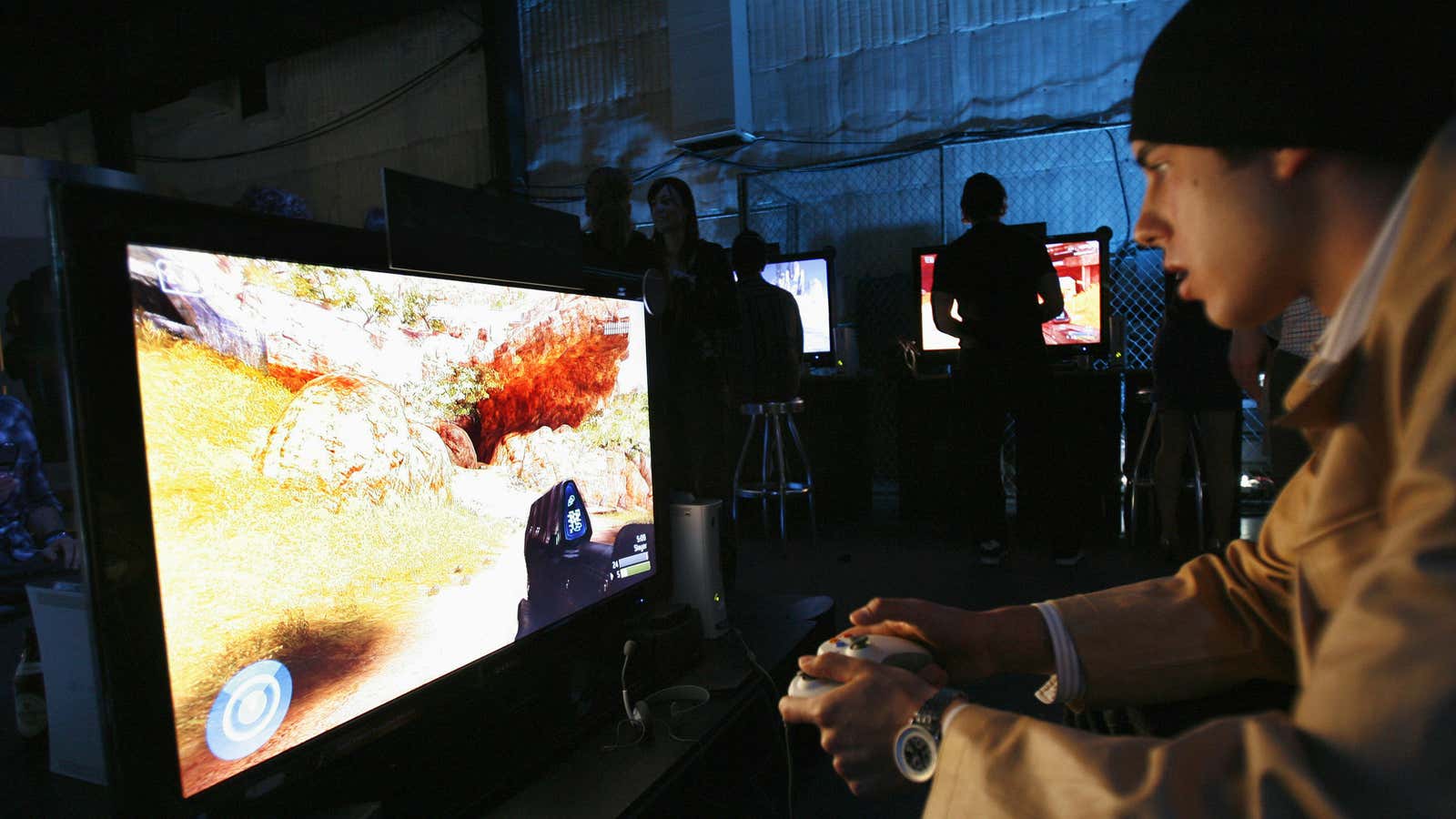Earlier this week, Elon Musk put forward a provocative argument: The odds are overwhelming that we’re characters in an advanced civilization’s computer simulation.
Our own video games have advanced at a rapid pace, from Pong in the 1970s to immersive virtual reality today, the Tesla and SpaceX CEO noted in a Q&A session at Recode’s Code conference:
So given that we’re clearly on a trajectory to have games that are indistinguishable from reality, and those games could be played on any set-top box or on a PC or whatever, and there would probably be billions of such computers or set-top boxes, it would seem to follow that the odds that we’re in base reality is one in billions.
It seems absurd at first reading, but Musk’s theory actually comes from a well-regarded philosopher. Nick Bostrom, a professor at Oxford University, published his computer simulation argument in 2003. He actually argues that one of the following three propositions is true:
- Virtually all civilizations at our pace of development will go extinct before they reach the technological capability of creating ultra-realistic video games.
- Civilizations with such technological capabilities are uninterested in running such computer simulations.
- We are almost certainly characters living in a computer simulation.
As it happens, Bostrom is less convinced than Musk that we’re living in a computer-simulated reality. “My view is that we don’t have strong enough evidence to rule out any of these three possibilities,” he says. But given that “most philosophical academic journal papers languish on shelves in dusty libraries,” Bostrom says it’s flattering to hear his argument espoused by Musk.
“All this world around us”
Bostrom is currently figuring out the implications of his theory. But he’s not particularly concerned that our reality might be simulated.
“It’s important to understand that it wouldn’t just be in a metaphorical sense that we’re in a simulation, it would be in a very literal sense that we ourselves and all this world around us that we see and hear and smell exists inside a computer built by some advanced civilization,” he says.
“The simulation hypothesis could be very good or very bad depending on what you think the motives of the simulators are—what will happen in the simulation, what will happen after the simulation ends. There are obviously both optimistic and pessimistic possibilities for that.”
Bostrom believes it’s entirely possible that conscious characters could be created inside a computer simulation. Even if it takes hundreds of thousands of years before such a feat is achieved, his argument still holds. And Bostrom doesn’t “see an obvious implication for the question of free will.” In other words, the same questions about agency hold whether we were created by God, the Big Bang, or an extremely sophisticated teenager on a futuristic Xbox.
If we’re simulated, does it matter?
Robert Rupert, philosophy of mind professor at the University of Colorado, says that the computer simulation hypothesis is “definitely worth taking seriously.” And though it sounds radical, Rupert says that if conscious, intelligent characters could be created inside a computer simulation then, “I don’t that that’s really much different from how I normally think of myself.”
As for the nature of reality, well, quantum mechanics is revealing quite a different picture of the world than the one we experience.
“It might be that, in some sense, all of the world that we think of as ‘the real world’ is itself information. And that’s what computers are running as well,” Rupert says. “It might turn out that metaphysically speaking, deep down, a simulation and reality are the same sorts of things.”
Still unconvinced? Bostrom insists that anyone who tries to dismiss his argument with a wave of a hand take a look at his paper, which makes strong use of probability theory. “There have been a number of attempts to refute it but I don’t think any of them have been successful,” he says.
And though Musk’s comments are a simplified reconstruction of his argument, Bostrom says it’s important to take such questions seriously.
“You might initially think that, well in the far future, you could make up any story and we can’t know anything about it,” he says. “But it turns out it’s not that easy to think of even one coherent picture that fits all the things we know about the world together. From that point of view it’s important intellectually for those who do want to try to think through these big picture questions.”
In other words, don’t laugh away Musk’s comments. There’s currently no way of proving that you aren’t a simulated character in an advanced civilization’s computer.
